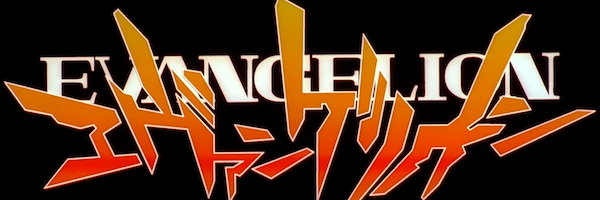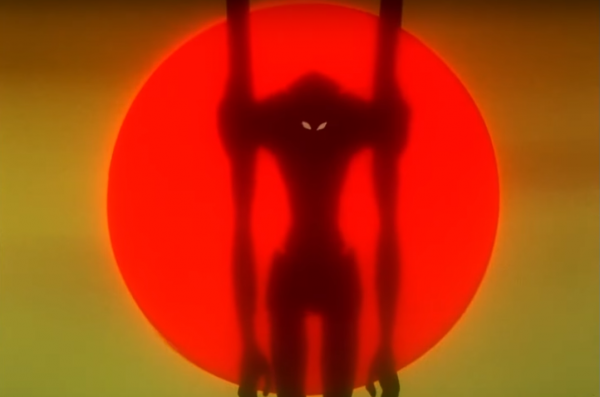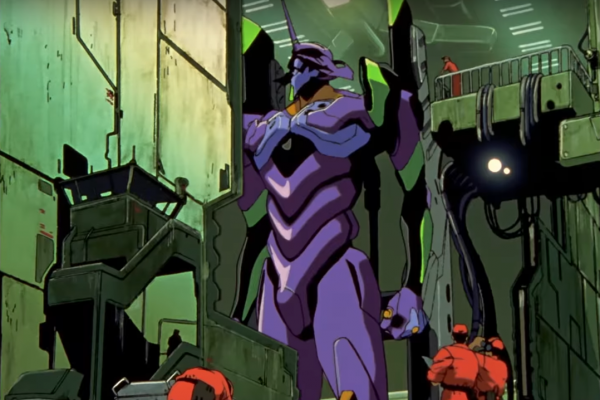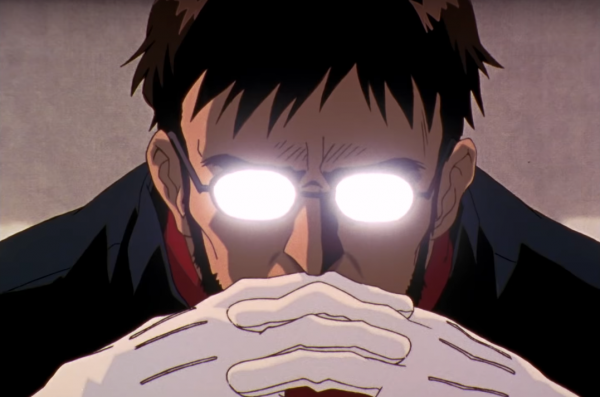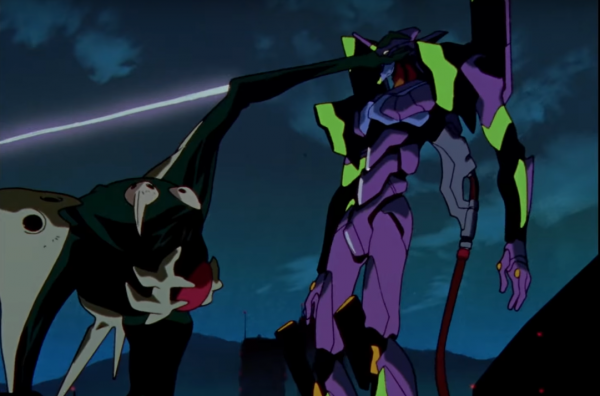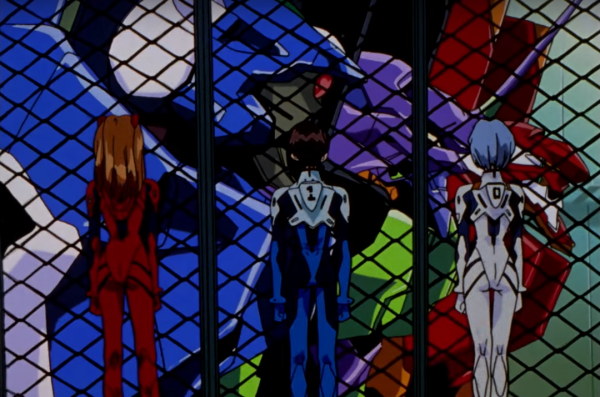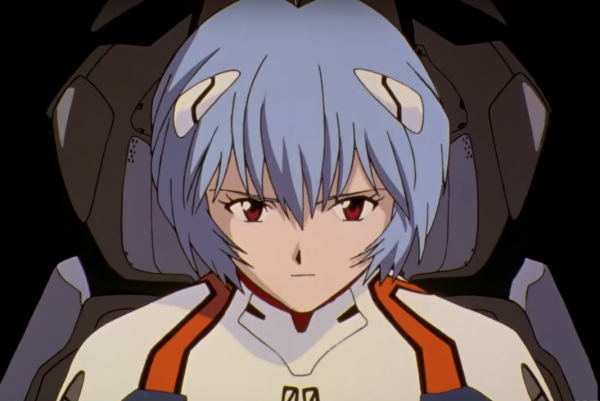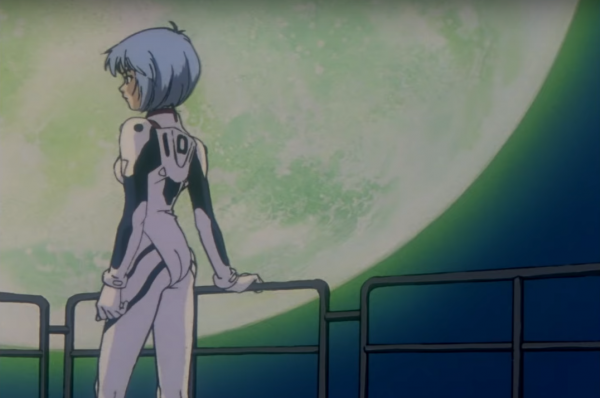With Neon Genesis Evangelion now streaming on Netflix, a first for the seminal anime series, a lot of newcomers and diehard fans are about to go all-in on the binge-watch. But in case you have never heard about the show or want to know more about it before settling in for all 26 half-hour episodes, we've put together a basic primer to get you started. Hopefully this piques your interest and you check out the first two episodes at the very least. That's usually about all it takes to show that Neon Genesis Evangelion is something special in the world of anime and stands up to scrutiny nearly 25 years later.
Back in 1995, Japanese audiences got to experience Neon Genesis Evangelion for the first time, witnessing a mecha series unlike anything that had come before it. In the U.S., however, anime had yet to become as big of a presence as it is today, and the nascent Internet limited access to overseas titles. The earliest we could get our hands on any official Evangelion content was in 1997 when ADV's English-language dub came out ... on VHS ... 13 of them. And even when they arrived on DVD a few years after that, director's cuts of episodes and a pair of retconned movies made it difficult to get the full picture. This is all to say that having all 26 episodes of Neon Genesis Evangelion at your fingertips with the click of a button is an absolute miracle of modern technology, and we old-ass weebs hope you appreciate that fact.
As for the anime itself, if you're not familiar with the series at all, be sure to check out the Netflix trailer below for starters:
Evangelion, the legendary series that shocked the world, returns to Netflix! The 26 episode series that started it all, Neon Genesis Evangelion, and the two feature films The End of Evangelion & Evangelion: Death (True)2, will stream exclusively on Netflix.
Who Created Neon Genesis Evangelion?
To understand what makes Evangelion special, you have to understand a bit about its creator, Hideaki Anno. Before he spearheaded the anime series that he would become most famous for, he worked as an impromptu apprentice animator of sorts for another icon you might have heard of, Hayao Miyazaki. His fantastic work on Nausicaä of the Valley of the Wind, especially the animated sequence of the giant biomechanical monstrosity known as the God Warrior, put Anno on the radar. This was back in 1984, the same year Anno became a co-founder of anime studio Gainax, which would go on to produce Evangelion more than a decade later.
That decade came with titles that few but diehard Anno fans would know: Royal Space Force: The Wings of Honneamise (1987), Gunbuster (1988) and Nadia: The Secret of Blue Water (1990–1991). Anno's well-documented battles with depression over the years between Nadia and Evangeliondirectly led to some of the themes that the latter anime is most famous for, and for which it's received its acclaim. Couple this mindset with a frustration with the tropes and expectations of the anime industry, and it becomes easier to understand why Anno took Evangelion in the bold, groundbreaking direction that he did. The ultimate ending of the series, however, was met with both praise and criticism from fans, which is why two films--Neon Genesis Evangelion: Death & Rebirth and The End of Evangelion--were released in 1997 to "fix" said ending. (They're beyond the scope of this beginner's guide, but the first scene of The End of Evangelion is ... a helluva thing.)
What's It About?
On the surface, Neon Genesis Evangelion is a mouthful of a title for a mecha series, or a show about humans piloting giant robotic war-machines against some deadly foe. Set in a dystopian future Japan 15 years after a worldwide cataclysmic event (c. 2015), massive creatures known as Angels attack Tokyo-3, a fortified city that may be the last great hope of humankind. During the first such attack, a young teenage boy named Shinji Ikari is escorted to the underground research base at the behest of his father, the director of a special paramilitary force known as Nerv. It's everyone's hope that Shinji can do what the combined military forces of the United Nations cannot and defeat the attacking Angels. To do this, Shinji will have to pilot a bio-mechanical mechs, along with similarly aged pilots Rei Ayanami and Asuka Langley Soryu. Without them, mankind will surely perish.
That all sounds pretty straightforward for anyone who's seen a mecha series before, and it is. But if you can get past the wordy title, and the basics of the plot, you'll find that nearly every trope and expectation is subverted throughout the 26-episode run. The action may be all about mechs vs monsters, but the subtext is all about character relationships, coming-of-age drama, overbearing parental expectations, and the awkwardness of adolescence.
It's also some of the bleakest, most depressing stuff you'll see, so don't let the candy-colored visuals fool you. The things that people do to each other in this anime, whether they're kids or adults, is incredibly psychologically and ethically troubling. But everything that's done is supposed to be for the greater good of humanity ... or at least that's the line the leaders use to convince their subordinates and themselves. To say more would be to give away the best moments in the series, so it suffices to say that Evangelion will twist your soul if you let it.
What Makes It So Good?
Neon Genesis Evangelion is not the first mecha anime. Mobile Suit Gundam, Robotech, Macross, and Mazinger Z to name but a few predated it by quite a few years. It's also not the first anime to see humankind banding together and using their last-ditch technology to either fend off an invading force or ensure human civilization's survival through some sort of ark; see Space Battleship Yamato, Robotech (again), and Beast King GoLion (i.e. Voltron) come to mind. These and other stories from a variety of sources, including major world religions and mythologies, served as inspiration for Neon Genesis Evangelion. The difference is what Anno did with his material.
Traditionally, mecha series center on an underdog hero who rises to the challenge against all odds and powers through the opposition with the help of his (it's almost always a guy) mighty war machine. Evangelion sets things up that way, but boy do they go in a different direction. Through an early subversion of expectations and a storytelling style that throws all the tropes out the window, viewers are clued in that they're watching something special. Anno delivers an earnest portrayal of a young man struggling with depression, as well as the conflicting urges to flee from responsibility and to please his superiors by doing what they ask despite the damage it causes to himself and others. There is a lot of subtext throughout the series, and as more truths are revealed, more layers start to get peeled back (sometimes literally).
Ultimately, Anno's narrative slips away from the nuts-and-bolts reality of this dystopian world and into the metaphysical space of the mind and soul. This is what a lot of fans took issue with nearly 25 years ago, so I'm curious to see how fans and newcomers alike react to it now. It really was a game-changer for anime that came after it, regardless of how you feel about the ending. Its success paved the way for deeper explorations of complicated characters who didn't necessarily follow the typical hero's journey. It was never afraid to go dark, mature, and downright wrong in order to show just what sort of trauma a character was dealing with at the time. Whatever hype you've heard about it, it's warranted.
And even if Evangelion isn't your thing, one universal praise is this: The theme song is a banger. Don't skip the intro on this one!

